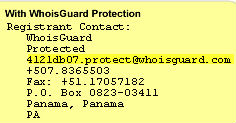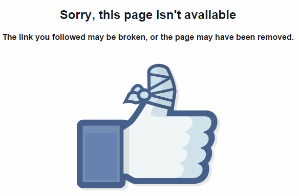Played.to Operator Admits Guilt in Expendables 3 Leak
vendredi 26 juin 2015 à 17:31 Last summer LionsGate suffered a major setback when a high quality leak of the unreleased Expendables 3 film appeared online.
Last summer LionsGate suffered a major setback when a high quality leak of the unreleased Expendables 3 film appeared online.
Fearing a massive loss in revenue, the movie studio sued the operators of several websites that allegedly failed to remove the infringing files.
Over the past several months there has been little progress in the case, but yesterday LionsGate announced that it reached a settlement (pdf) with one of the accused site operators.
In a new filing at the California district court, Jerome Gillan, the operator of video hosting site Played.to, admits to willful copyright infringement for his role in the controversial leak.
While the video hosting service has nothing to do with the original leak, Gillian played a role by hosting copies of the film and allowing users to watch these through embedded streams.
In addition, the Played.to operator admits that he failed to process or respond to takedown notices before the lawsuit was filed. As a result, he is liable for the resulting infringements under the DMCA.
According to the proposed judgment which has been agreed by both parties, Gillan takes full responsibility by admitting to all claims the movie studio brought against him.
“Gillan has willfully infringed Lions Gate’s copyright in the Film directly, contributorily and vicariously and is liable for all of the causes of action that Lions Gate has asserted against him in this action,” the proposed consent judgment reads.
Together both parties inform the court that they’ve reached a confidential settlement. According to the agreement Gillan has accepted financial and other obligations to resolve Lions Gate’s claims, but how much he has to pay is not disclosed.
In addition, Played.to and its operator are prohibited from “hosting, linking to, distributing, reproducing, performing, selling, offering for sale, making available for download, streaming or making any other use of any copy or copies of the Film.”
The proposed judgment only applies to Played.to, the claims against other websites including the torrent search engine Limetorrents.cc remain unsettled.
At the time of writing the Played.to website is still online. The site has lost a lot of traffic in recent months but is still widely used to host videos.
Previously the UK police also arrested several people who allegedly leaked the Expendables 3 movie online, but thus far the true source of the leak remains unknown.
Source: TorrentFreak, for the latest info on copyright, file-sharing, torrent sites and the best VPN services.
 As 2015 hits its mid-point, a handful of key strategies are clearly favored by the world’s largest entertainment companies.
As 2015 hits its mid-point, a handful of key strategies are clearly favored by the world’s largest entertainment companies. In recent months copyright holders have been increasingly pushing for changes in the domain name industry.
In recent months copyright holders have been increasingly pushing for changes in the domain name industry.  Due to their prevalence among citizens of the UK, Facebook accounts have grown out to become much more than just a place to manage social lives. For some they’re providing a great way to distribute infringing content and this hasn’t gone unnoticed by the authorities.
Due to their prevalence among citizens of the UK, Facebook accounts have grown out to become much more than just a place to manage social lives. For some they’re providing a great way to distribute infringing content and this hasn’t gone unnoticed by the authorities. Piracy monetization firm Rightscorp has made quite a few
Piracy monetization firm Rightscorp has made quite a few 